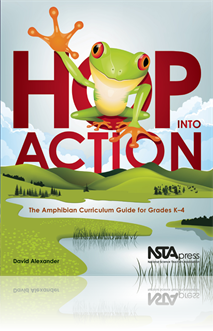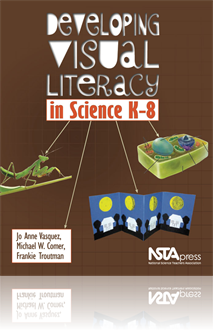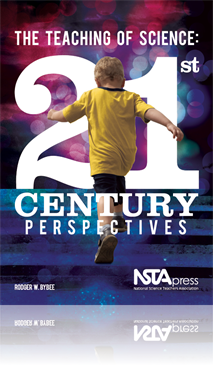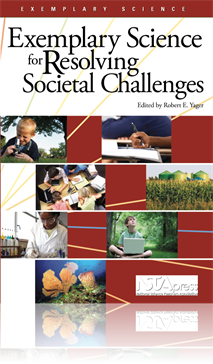All Book Chapters
Book Chapter
In this lesson, students discuss the ingredients that make up a healthy frog pond. The objective is for students to be able to describe the components of a frog pond to include living parts—plants and animals—and nonliving parts—water, air, so...
Book Chapter
In this lesson, students create a list of living and nonliving things found within a frog pond habitat and discuss their relationships to each other through the creation of a simulated web using a ball of yarn. The objective is for students to be abl...
Book Chapter
Visual Literacy in Earth Science: Phases of the Moon
Chapters 6, 7, and 8 are practice chapters. Each chapter provides the appropriate content standards for grades K-4 and 5-8 and several partial lessons and each follows the same format but addresses a different content area. This chapter addresses Ear...
Book Chapter
A Perspective on the Reform of Science Teaching
This chapter presents a perspective on reform. It begins with a brief review of the instructional core, then turns to a larger view of reform, one that includes broader questions of goals and progresses to the most fundamental area—classroom practi...
Book Chapter
The Teaching of Science: Contemporary Challenges
This chapter introduces the subsequent chapters with major themes and an emphasis for the book. It also sets forth the themes of curriculum and instruction as they relate to science teachers. ...
Book Chapter
The Teaching of Science Content
This chapter presents the ideals and spirit of Paul F-Brandwein. In particular, it brings contemporary ideas to themes that he presented almost 50 years ago. Those themes include the substance of science education, curricular structure, and the style...
Book Chapter
The Science Curriculum and Classroom Instruction
This chapter uses the major contributions of Bob Karplus to develop several important themes that have emerged in the past five decades of curriculum and instruction in science. The chapter begins with a perspective on curriculum development and curr...
Book Chapter
The 2008 Robert H. Carleton Lecture provides the content for Chapter 4. The chapter centers on the themes of teaching science as inquiry. After a brief introduction to the history of inquiry in science education, the national standards are used as t...
Book Chapter
Science Teaching and Assessing Students’ Scientific Literacy
This chapter introduces some dimensions of scientific literacy and describes PISA, the Program for International Student Assessment, as the basis for understanding scientific literacy from both teaching and assessment perspectives. Most science educa...
Book Chapter
Fulfilling National Aspirations Through Curriculum Reform
This chapter and chapter 7 provide contemporary perspectives on the response of science education to national priorities and goals. This theme is explored with reflections from the Sputnik era of curriculum reform. Reflecting on the Sputnik era provi...
Book Chapter
Teaching Science as Inquiry and Developing 21st-Century Skills
Contemporary national aspirations also include maintaining economic competitiveness. The economic theme is a relatively short-term goal, and for science education it implies preparation of a 21st-century workforce. For the science teacher, this aspir...
Book Chapter
The authors contend that preservice training in Project-Based Science (PBS) facilitates early faithful implementation of PBS, which in turn provides students with the opportunity to engage in the public discourse and debate advocated in Goals 2000 Ob...
Book Chapter
Using Socioscientific Issues as Contexts for Teaching Concepts and Content
This chapter focuses upon the conceptual development and implementation of a socioscientific issues (SSI) curriculum in two high school science classrooms. The scenarios and perspectives described in this chapter exemplify fundamental examples of be...
Book Chapter
Securing a “Voice”: The Environmental Science Summer Research Experience for Young Women
Roland Park Country School is an urban college preparatory school for students in grades K–12 located in Baltimore, Maryland. An independent all-girls school, the institution maintains a commitment to community outreach to address issues of equity ...
Book Chapter
Two settings build the premise for this chapter and comprise the Connecting Humans and Nature through Conservation Experiences (CHANCE) program. The first setting is a summer field course in Costa Rica and the second is the regular school classroom d...





